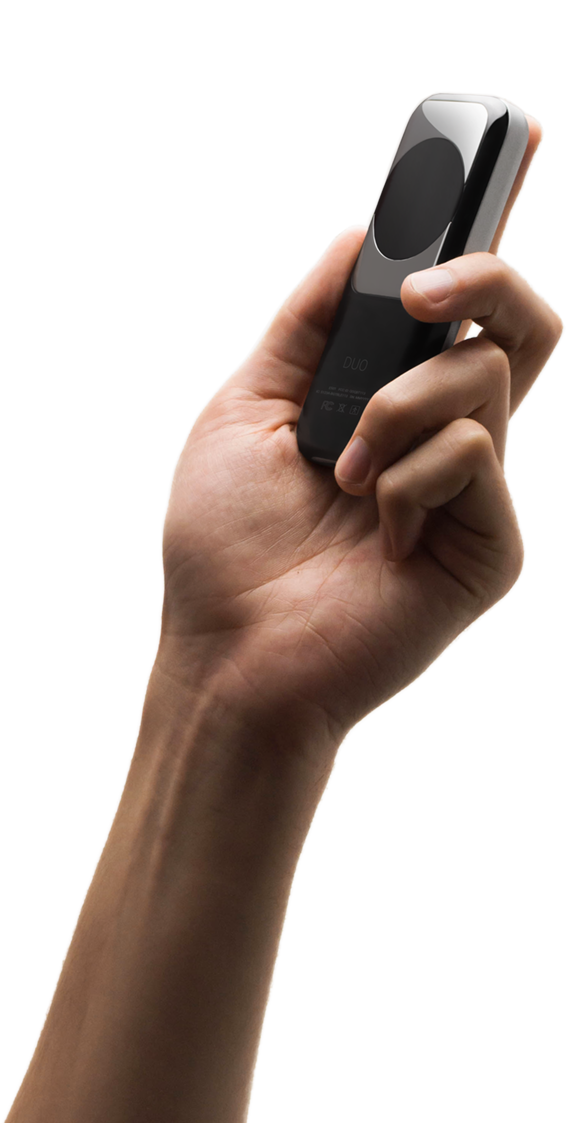This Gadget Can Monitor Your Heart Better, From Home
June 9, 2017
Developer seeks to combine device with machine-learning algorithms to automatically alert patients and physicians of worsening heart failure.
Nancy Crotti
The company that introduced one of the first smart stethoscopes just landed FDA clearance for a combined digital stethoscope and electrocardiogram that patients can use at home.
|
FDA cleared the Eko Duo, a combination device designed to wirelessly transmit heart sounds and electrical activity to a physician, potentially warning of heart failure, atrial fibrillation, or a false alarm. |
The Eko Duo by Berkeley, CA-based Eko Devices Inc. is a handheld device with a smartphone app designed to wirelessly transmit heart sounds and electrical activity to a physician, potentially warning of heart failure, atrial fibrillation, or a false alarm. Physicians can use Eko Duo at the bedside and in telemedicine consultations with other clinicians, according to the company.
The stethoscope amplifies sounds up to 60 times, has built-in noise reduction and four digital audio filters. The ECG has two stainless steel electrodes, a 500 Hz sample rate and a 0.01 HZ high-pass filter. Users can elect to use its 50 Hz or 60 Hz mains filter.
Eko is also developing machine-learning algorithms that can be combined with Duo to automatically alert patients and their care teams of a suspected decline in cardiac function.
Studies have shown that about 25% of heart failure patients are readmitted to the hospital within 30 days, and 50% are readmitted within six months. Heart failure costs the nation $30.7 billion annually, according to the Centers for Disease Control and Prevention.
"I'm excited about the device," said University of California San Francisco cardiologist John Chorba in an email. "I see it primarily as a great way to capture the heart sounds and some electrocardiographic findings in a very user-friendly way."
Chorba, who has been an unpaid advisor to Eko since its founding in 2013, said he hopes the device will allow cardiologists to capture lots of data on patients and learn information about heart sounds that they could not previously detect with their ears alone.
"We're gearing up to start a study to look specifically at valvular heart disease, and see whether we can develop an algorithm for the device to reliably detect patients with significant valvular disease versus those without," he added. "Obviously I don't know what we'll find - that's the nature of research - but I think the potential here really is enormous, and valvular disease could just be the tip of the iceberg, but it's what we'll start out looking for to begin with."
The company's first device, a smart stethoscope called Eko Core, landed FDA clearance in 2015. Eko Core can attach to an existing stethoscope to amplify and record sound for physicians, thus also allowing patients to hear those sounds.
Nancy Crotti is a contributor to Qmed.
[Image credit: Eko Devices Inc.]
About the Author(s)
You May Also Like


.png?width=300&auto=webp&quality=80&disable=upscale)
